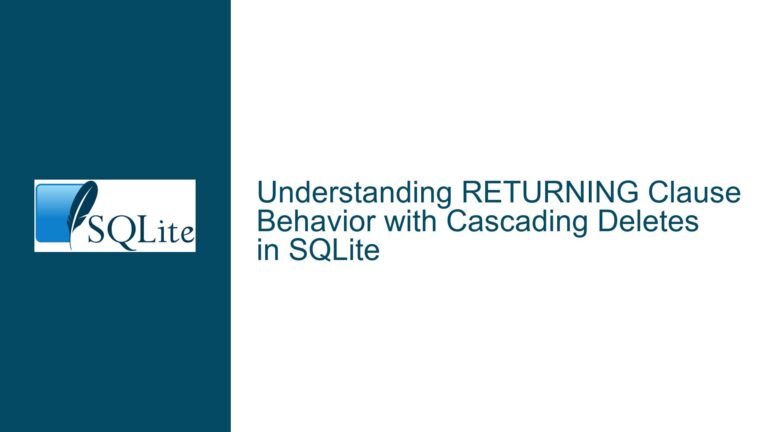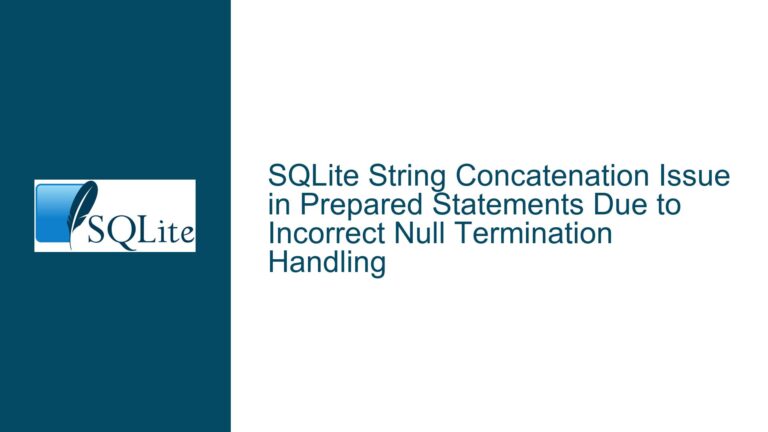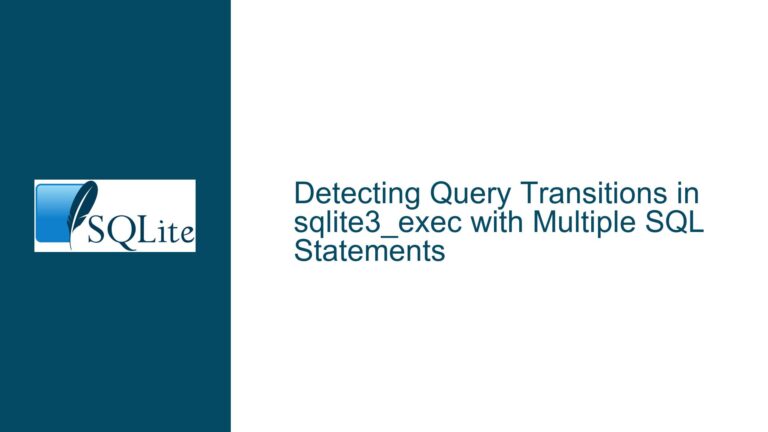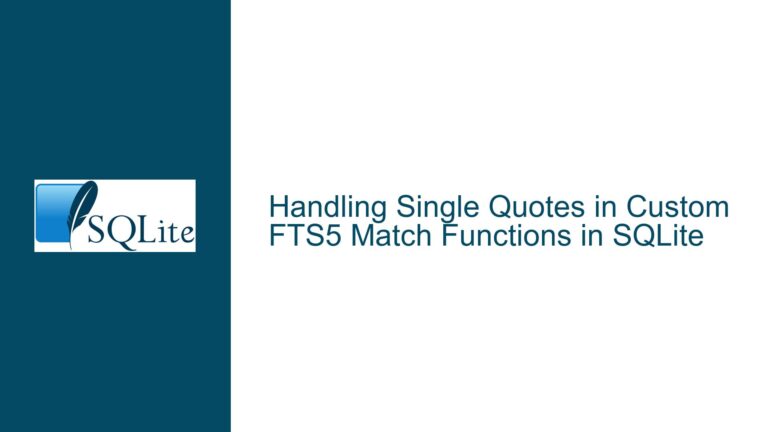Efficiently Handling Date Updates in SQLite Without Redundant Calls
Redundant DATE() Calls in SQLite Update Queries When working with SQLite, a common issue arises when updating records with the current date or timestamp. Specifically, developers often find themselves calling the DATE() function multiple times within the same query, which can lead to inefficiencies and potential maintenance challenges. For instance, consider a scenario where you…









